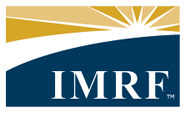1.10 Board Meeting Protocol
Rules of Order and Quorum
- The Board shall operate under the general guidance of Robert’s Rules of Order.
- A quorum of five must be present for the Board to conduct business.
- Board members may not attend meetings through delegates or authorize voting by proxy.
- Any Trustee may make or second a motion.
Scheduling of Regular, Special, and Emergency Meetings
- Regular meetings of the Board will be held at least four times a year. The Board will adopt an annual schedule identifying the time and location of regular meetings for the coming year in December of the preceding year. The Board may schedule some meetings outside of the Village of Oak Brook. The Board may modify this schedule at its discretion.
- Any three Trustees may call for special or emergency meetings of the Board.
Meeting Notices
- At least forty-eight hour notice of all Board meetings, including executive sessions, will be provided to the public in accordance with the Illinois Open Meetings Act.
- If permitted by the Illinois Open Meetings Act, in the case of an emergency meeting requiring immediate action to avoid some serious consequence, shorter notice may be provided.
- The Executive Director shall normally provide the Trustees with seven calendar day’s notice of all Board meetings.
Trustee Attendance by Electronic Media
A Trustee may participate in any meeting of the Board by telephone or video conference in a manner consistent with the Illinois Open Meetings Act.
Meeting Agendas
- The President in consultation with the Executive Director will prepare an agenda for each Board meeting containing the specific matters to be discussed, considered or decided at the meeting.
- The Board may discuss, consider or make decisions only on matters on the agenda.
- Items can be placed on a Board meeting agenda by:
-
- Any Trustee
- A Board Committee
- The Board President
- The Executive Director
- The agenda for an executive session must contain a general description of the matter to be considered or decided at the meeting.
Meeting Materials
- The Executive Director will make every reasonable effort to distribute related Board meeting materials to the Trustees seven calendar days before each meeting.
- The Executive Director shall prepare a summary of the issues to be discussed, a staff or committee recommendation, if applicable, and a proposed motion for the Board to consider.
Public Access and Testimony at Board Meetings
- All meetings of the Board are public and all persons who wish to attend may do so in accordance with the Illinois Open Meetings Act.
- Every agenda for regular Board meetings will provide the public an opportunity to be heard. The Board President may prescribe the time and manner of such public comment.
- The Executive Director, in consultation with the President, will convene meetings in facilities and locations that provide the public with reasonable access.
Executive Sessions
- The Board may conduct business in executive session as permitted by the Illinois Open Meetings Act. Executive sessions shall be presided over by the President of the Board.
- Executive Sessions shall be closed to the public and subject to the following conditions:
-
- The executive session must be held during a regular, special or emergency meeting of the Board.
- The executive session must address only those subject matters permitted under the Illinois Open Meetings Act.
- The executive session must satisfy all notice requirements under the Illinois Open Meetings Act.
- Proceedings will be recorded.
- The Board will take no action with regard to a matter considered in executive session. Any such action must be taken during that portion of a meeting that is open to the public.
Meeting Minutes and Board Records
- The Executive Director working with the Board Secretary will ensure that minutes of all meetings of the Board are taken and made available to the public as required by Illinois law.
- The Executive Director working with the Board Secretary will prepare a written copy of the minutes taken at prior meetings of the Board and present it to the Board for approval at a subsequent meeting.
- The Executive Director working with the Board Secretary will maintain records of the Board activities and actions in accordance with Illinois law and such other documents necessary to establish a due diligence record of the Board’s activities.
Conflicts of Interest at Board Meetings
Whenever a Board member has a real or perceived conflict of interest he/she must advise the other members of the Board or Board Committee of the existence of the conflict and that he/she will abstain from voting on the issue in question.
The Board member may choose to participate in the debate on the issue in question only if the member, first, fully explains the nature of the conflict to the remaining Board members; and, second, the member only provides factual background or other information that might aid the remaining Board members in reaching a decision. The Board member who has a real or perceived conflict of interest shall not attempt to persuade the other Board members as to the merits of the issue in question.
If the Board member does not wish to fully explain the nature of the conflict, the member must choose to not participate in the discussion of the issue in question. (See Board Resolution 2004-08-09, adopted 08/27/04.)

